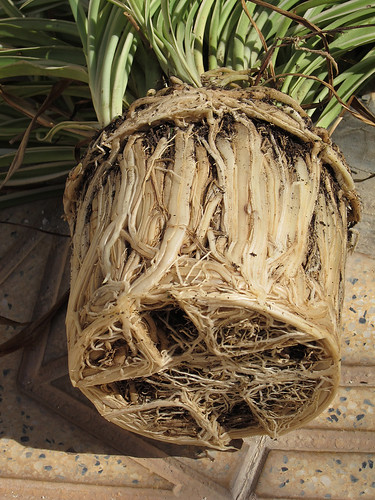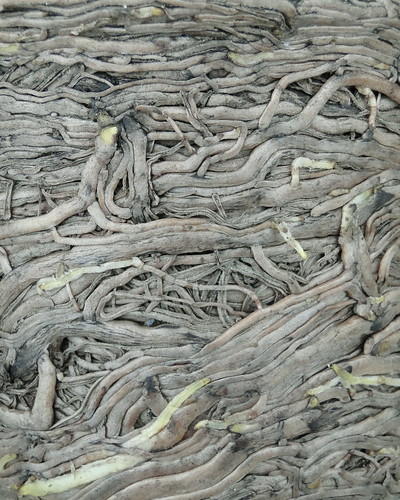Potbound Problems and Cures
What is a Potbound Plant
- A plant that has been in a pot or container long enough to fill the pot with roots can be said to be potbound.
- Roots often twist around the outer edge of the pot and form a knotty clump of roots.
- The roots may be so tight that a plastic pot bulges and has to be cut away with secateurs to get the plant out.
- A terracotta pot that has become pot bound may need to be broken to access the plant.
- Houseplants that can’t take up water, have roots coming out of drainage holes and a hard impenetrable surface are likely to be pot bound
Problems Caused by being Potbound
- The compost and nutrient is all consumed and used up.
- It is almost impossible to water and get the centre of the root ball damp. The roots may be trapped in dry compost
- Top growth and general health will be restricted where a plant suffers from being potbound.
Cures for Potbound Problems
- You can surgically remove some of the twisted roots on many potbound plants including shrubs and herbaceous plants.
- One third of the roots can be removed comfortably. The old thick, brown and damaged roots should go first.
- Aim to create space for new roots to develop.
- Fleshy rooted plants and those that dislike root disturbance such as Alstroemeria and Peonies should have their roots left whole.
- Open up roots by gently tweaking the edges and shaking out some compost to open up the root ball.
- Allow the root ball to soak for at least an hour
- If planting out dig a large hole and lay the tweaked out roots as widely as possible. Do not leave the root as a ball or the they will never spread into the surrounding ground as you intend.
- If repotting your plant shake off as much old compost as possible, plant in a larger container and do not leave it too long to repot in the future.
Opposite of Potbound
- Some garden centres put plants in larger pots for sale so they can charge more for them.
- Without time for the plant to develop roots in the new pot it may be immature and quite unsuitable.
- This may mean the ball of compost falls away when you get the plant ready for its new home. I think this is just sharp practice.
- Over potting is putting a plant in a pot far too large. At the most use a pot that is double the size of the existing pot for even distribution of nutrient and moisture.
Attribution ‘The root of the problem Project 365(2) Day 111’ by Keith Williamson, on Flickr Creative Commons License Deed Attribution 2.0 Generic (CC BY 2.0)

